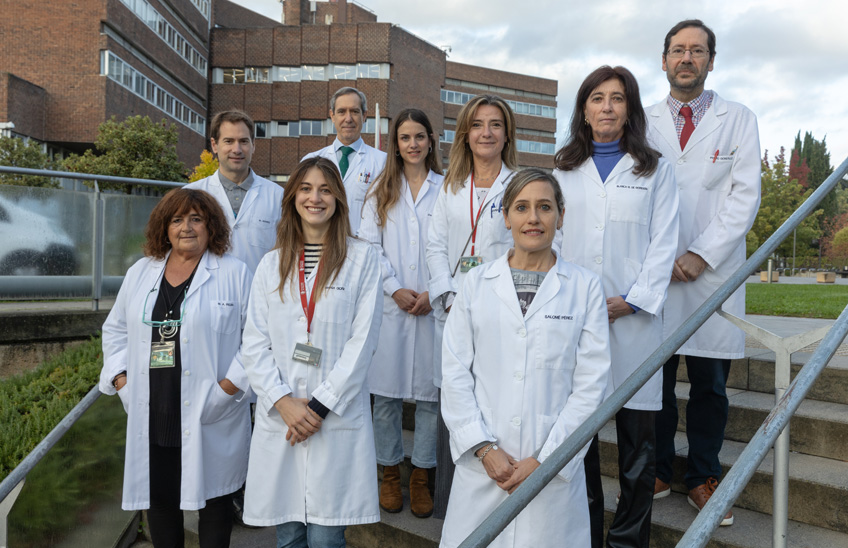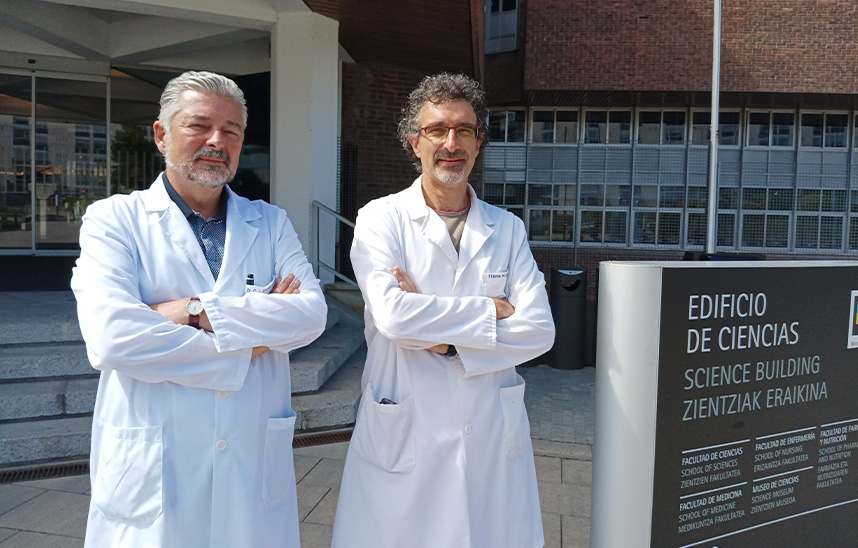The University seeks volunteers for an innovative project on diet and gut microbiota
Scientists from the Center for Nutrition Research participate in "BIOTAGUT", a project to design foods with a positive impact on metabolic health

PhotoManuel Castells/
20 | 08 | 2021
The Center for Nutrition Research of the University of Navarra participates in a novel project, "BIOTAGUT", which aims to evaluate the effect of foods based on the Mediterranean dietary pattern on the intestinal microbiota and metabolic health of individuals.
"We seek to improve the state of health by modulating the intestinal microbiota. To do this, we have thought of foods that are part of the usual diet in Mediterranean countries, such as yogurts, olive oil, bread, infusions and vegetable products, developed based on the knowledge of the 'healthy' microbiome and its response to different types of food," explains Fermín Milagro, director of the research line in Nutriomics and Biomarkers.
In order to carry out this research, the Center requires the collaboration of adult volunteers interested in knowing what their microbiota is like. Thus, it is necessary that interested volunteers fill out the online form or make contact through the mail voluntariosnut@unav.es.
Modifying the composition of the microbiota through nutrition
“A century ago, it was proposed to modify the composition of the intestinal microbiota in order to improve health," says Milagro. Today, this idea has taken on greater prominence in the search for tools to help restore the intestinal microbial balance and its metabolic activity. This is the case of personalized diets based on the use of prebiotics, probiotics, synbiotics, bioactive compounds and functional foods, or the transplantation of fecal microbiota. "In reality, we are a complex ecosystem greatly influenced by the microbiota we live with, so having adequate gut health takes on special relevance for health promotion and prevention."
The same conclusion was reached by the Twins UK study carried out on identical twins at the University of Cambridge, which found significant variations in gut microbial composition due to nutrition, "which has led to the conclusion that the influence of diet on gut microbiota may be a risk factor for disease, even more important than genetics". As a consequence, dietary recommendations represent an attractive option in cases where a link between gut microbiota and the risk of developing a disease is established or as a possible treatment when the diagnosis has been confirmed.
In this regard, associations have been found between alterations in the microbiota and various diseases of the digestive system such as irritable bowel syndrome or celiac disease; certain systemic diseases such as obesity, diabetes and inflammation; disorders related to the central nervous system (including depression, Parkinson's disease and even Alzheimer's); or risk factors for cardiovascular disease such as hypertension and hyperlipidemia (high cholesterol and high triglycerides).



